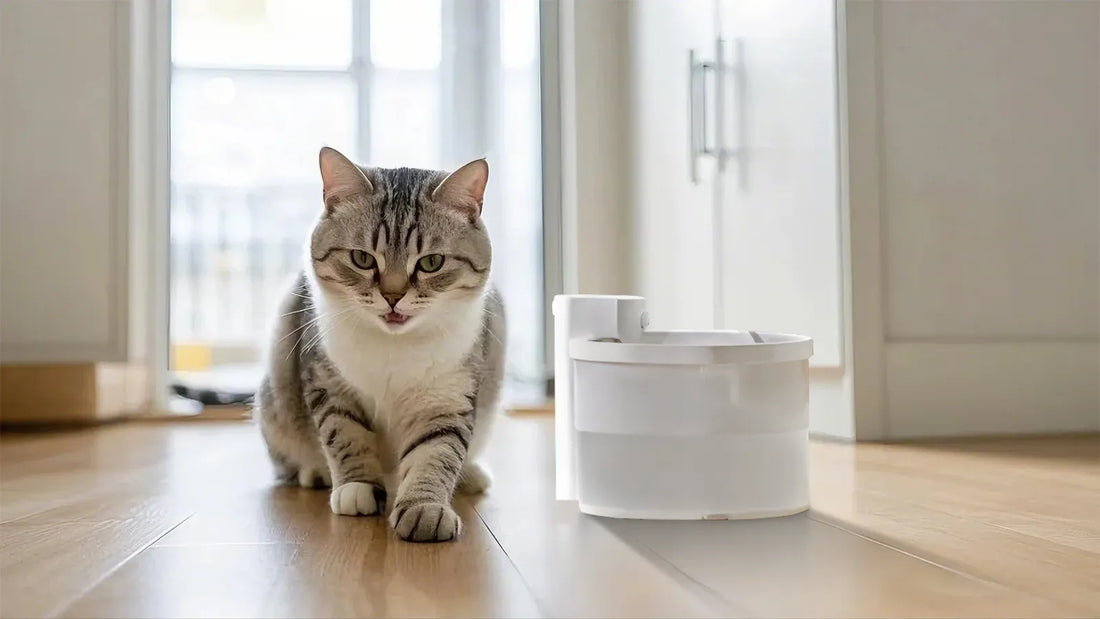When it comes to our feline companions, their health and well-being are paramount. One of the most pressing questions cat owners often ask is, how long can a cat go without food and water? This article delves into the science behind a cat's survival without sustenance, the risks involved, and practical advice to ensure your cat remains healthy and hydrated.
The Physiology of Cats and Their Need for Food and Water
Cats, like all living beings, require food and water to survive. Water is essential for maintaining bodily functions, including digestion, circulation, and temperature regulation. Food provides the necessary nutrients and energy for daily activities and overall health. Understanding the physiological needs of cats can help pet owners make informed decisions about their care.
How Long Can a Cat Survive Without Water?
Water is critical for a cat's survival. Unlike some animals, cats cannot go long without water. On average, a cat can survive for about three to four days without water. However, this timeframe can vary depending on factors such as the cat's age, health, and environmental conditions. Dehydration can set in quickly, leading to severe health complications.
How Long Can a Cat Survive Without Food?
When it comes to food, cats can typically survive longer without it than without water. A healthy cat can go without food for about one to two weeks. However, this is not ideal, as prolonged lack of food can lead to malnutrition, organ failure, and other serious health issues. Kittens, older cats, and those with pre-existing health conditions may have a shorter survival time without food.
Risks of Prolonged Lack of Food and Water
Understanding the risks associated with a cat going without food and water is crucial for pet owners. Prolonged deprivation can lead to severe health complications, some of which can be life-threatening.
Dehydration and Its Consequences
Dehydration occurs when a cat loses more fluids than it takes in. Symptoms of dehydration in cats include lethargy, dry gums, sunken eyes, and loss of skin elasticity. Severe dehydration can lead to kidney failure, shock, and even death. Ensuring your cat has access to fresh water at all times is essential to prevent dehydration.
Malnutrition and Organ Failure
Without adequate food, a cat's body will start to break down its own muscle and fat for energy. This can lead to malnutrition, which weakens the immune system and makes the cat more susceptible to infections and diseases. Prolonged lack of food can also result in organ failure, particularly in the liver, which can be fatal.
Practical Tips for Ensuring Your Cat's Health
As a responsible pet owner, it's important to take proactive steps to ensure your cat remains healthy and well-nourished. Here are some practical tips to help you care for your feline friend.
Provide Fresh Water Daily
Always ensure your cat has access to fresh, clean water. Consider placing multiple water bowls around your home to encourage your cat to drink more. Some cats prefer running water, so a cat water fountain might be a good investment.
Offer a Balanced Diet
Feed your cat a balanced diet that meets its nutritional needs. Consult with your veterinarian to determine the best type and amount of food for your cat's age, weight, and health condition. Avoid sudden changes in diet, as this can upset your cat's stomach.
Monitor Your Cat's Health
Regularly monitor your cat's health and behavior. Look out for signs of dehydration or malnutrition, such as changes in appetite, weight loss, or lethargy. If you notice any concerning symptoms, consult your veterinarian immediately.
When to Seek Veterinary Help
If your cat has gone without food or water for an extended period, it's crucial to seek veterinary help as soon as possible. A veterinarian can assess your cat's condition and provide the necessary treatment to prevent further complications.
Emergency Situations
In emergency situations where your cat is severely dehydrated or malnourished, immediate veterinary intervention is necessary. The veterinarian may administer fluids intravenously or provide nutritional support to stabilize your cat's condition.
Preventive Care
Regular veterinary check-ups are essential for maintaining your cat's health. Your veterinarian can provide preventive care, such as vaccinations and parasite control, to keep your cat healthy and reduce the risk of illness.
Understanding how long a cat can go without food and water is essential for every pet owner. By providing your cat with the necessary care and attention, you can ensure it remains healthy and happy. Remember, a well-nourished and hydrated cat is a happy cat, and your efforts will be rewarded with years of companionship and love.

![[🎃Halloween Sale]UAHPET Stainless Steel Self-Cleaning Cat Litter Box](http://www.uahpet.com/cdn/shop/files/1-cat-litter-box.jpg?v=1759128420&width=1600)












